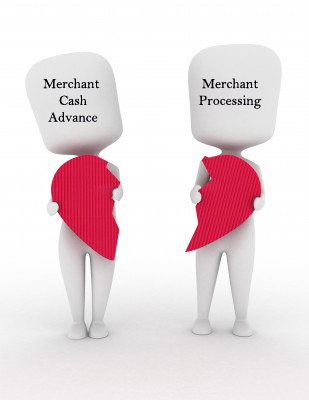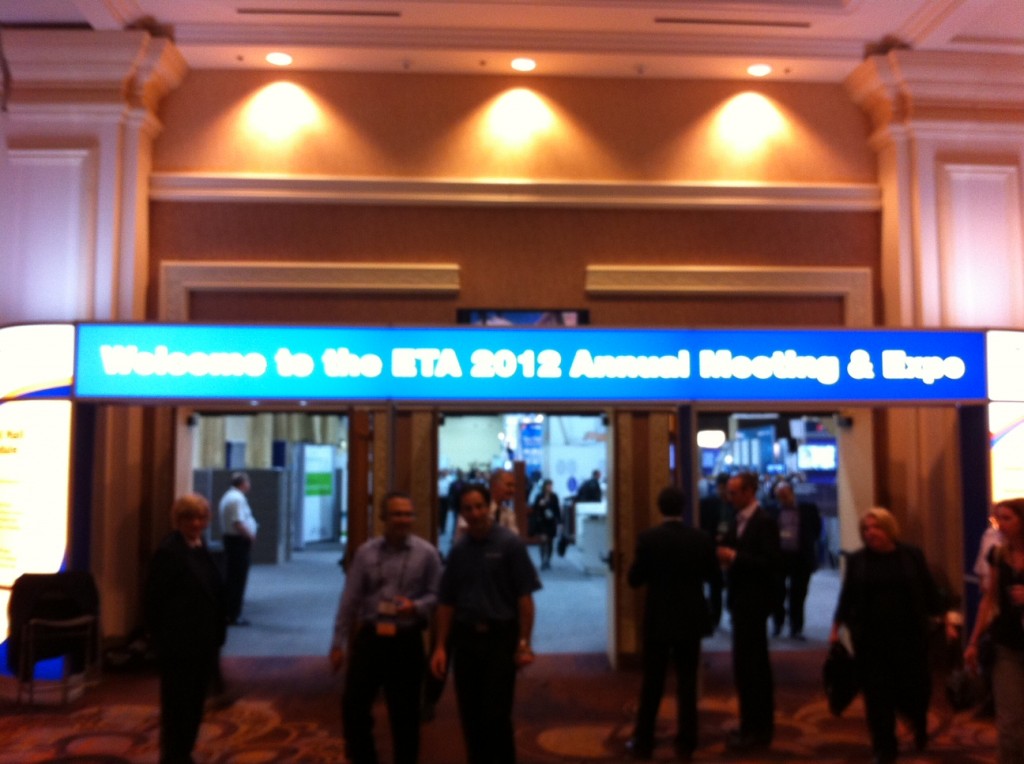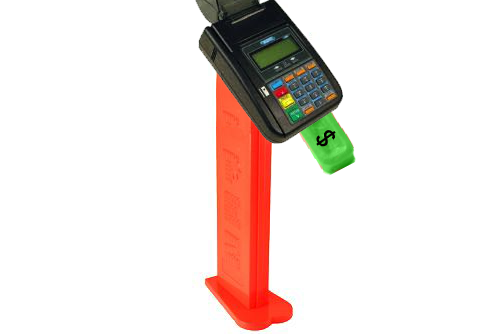Merchant Processing
Why You Need FundersCloud – An Independent Review
August 29, 2012Picture this:
You get up in the morning, take a shower, brush your teeth, and hop on to your computer. 73 new e-mails are waiting in your inbox. Ugh! Some of them are saying “Hey buddy, I got this deal that I think you might want to co-fund. Give me a call later and I’ll try to give you a breakdown.” Half of the time when you call these guys back, they’re busy, have already found a participant, or the deal is way too risky for you to be interested in. Fortunately, you don’t really have to deal with this hassle ever since you joined FundersCloud. You close Outlook, log in to the Cloud and check out the menu of fresh deals that have been posted to the site. You read them aloud to yourself as you scroll down the list. “15k in monthly credit card sales, 40k gross, 720 credit, in business 3 years, ooo.. and it’s a restaurant! $10,000 advance for $13,700… I like… I like… oh and $7,000 has already been raised.” You click ‘Bid’, type in $3,000, and click ‘Bid’ again to finalize. That’s it. You’re done. Once the agent closes the deal, your $3,000 is automatically withdrawn, along with the amounts from the other participants to fund the merchant the $10,000. Satisfied, you walk into the kitchen to make toast…
And that’s what FundersCloud has done. Whether you are an independent agent, an ISO, or a funder, deal syndication is now as easy as:
FundersCloud is not the competition. They’re the turbo boost button to the marketplace that already exists. This Cloud doesn’t threaten or replace your existing cloud, system, database, or CRM but rather complements it, integrates with it, and adds even more value to what you already have.
 FundersCloud makes funding quicker, smarter, more efficient, and incredibly transparent. This isn’t a paid advertisement. In fact we spent a few weeks on the phone with the FundersCloud team to come up with our own independent assessment. “How does this work? Who reviews this data? How can people trust you?” and so on… We’re actually thankful their team is still accepting our phone calls after our barrage of questioning and requests for details.
FundersCloud makes funding quicker, smarter, more efficient, and incredibly transparent. This isn’t a paid advertisement. In fact we spent a few weeks on the phone with the FundersCloud team to come up with our own independent assessment. “How does this work? Who reviews this data? How can people trust you?” and so on… We’re actually thankful their team is still accepting our phone calls after our barrage of questioning and requests for details.
The reason we believe FundersCloud is the future of syndication is because it allows people to continue syndicating with funders and people they already trust.
Huh?!
Allow us to explain using a fictional example:
Funder 123 encourages friends, agents, and funders to participate in funding certain deals. ISO ABC likes to syndicate some of those deals but not all of them. So the owners of ISO ABC wait and hope that Funder 123 will call them sometimes with a deal that they like. Sometimes they hate the deal. Sometimes they like it. Other times, they play so much phone tag that they miss out on the opportunity. The process takes phone calls, emails, and time, time, time. Not to mention that Funder 123 may make several of these calls to other people to join in on the participation as well.
In a perfect world, ISO ABC would automatically be notified that Funder 123 has approved a deal and is seeking participants. The key factors like credit score, processing volume, batch frequency, gross sales, and other pertinent information would be immediately available. The ISO could then click a button if they wanted to participate and the rest of the process would all be automated. This perfect world exists because this is the FundersCloud model.
Ohhh yea! And it gets better
An agent is tired of submitting his/her deals to 5 funders at once, hoping that one of them will approve it. The funders are tired of the agent doing that too. Because the agent is forced to maximize the odds of approval, there is really no alternative solution than to continue operating this way. FundersCloud resolves the mess.
Hypothetical Agent DEF uploads their deal to the Cloud and selects one company from the vast array of Deal Controllers to verify and underwrite the file. Deal Controllers are typically existing funding providers, companies that have the ability to pay commissions, collect funds back from the merchants, and track the activity. Perhaps Agent DEF’s deal does not accept credit cards but does more than $10,000 a month in gross revenue, something that a lot of companies like to look at now. So Agent DEF selects a funder as the Deal Controller in the Cloud. The underwriters at that funder are then able to access the deal through the Cloud and underwrite it. If the file meets their standards, they Verify it. The funder can then choose to fund 100% of the deal themselves or pledge to fund anywhere from 1% to 99% of it and put the remaining percentage of the approved funding terms up for auction on the Cloud.
The key details of the deal are then immediately posted and viewable to all members of the Cloud. Thousands of people will now see that a funder has verified this deal and is willing to fund part of it. If you trust that funder’s judgment, have participated with them before, or just love funding anything you can get your hands on, you can opt to participate in the deal with them. You’re not flying blind because the credit score, processing volume, gross sales volume, time in business, type of business, and batch count are all there for you to see. Cloud members can’t steal deals because any information that could be used to identify the merchant is not visible.
So why is this better? You’re only submitting your deal to one Deal Controller (funder) through the Cloud, which then allows thousands of agents, ISOs, and funders to participate if the Deal Controller chooses to fund none of it or less than 100% of it. With this kind of system, why the hell would any agent continue to send out their deal to multiple funders and then wait a week to hear back from all of them? The merchant’s credit would get hit 5 times, one of those funders might steal the deal for themselves, and at the end of the day, only 5 people are looking at it. Wouldn’t you rather let one funder Verify your deal and then give thousands of companies and agents the chance to fund it? Seriously…
If the Deal Controller is verifying the deal and can see the full file, what’s to stop them from stealing it?
A contract, a zero-tolerance policy, and a reminder that it’s up to you to choose your Deal Controller. If there are two choices in the Cloud to Verify your deal and one is XYZ Funder and the other is someone you know very well, you can pick the company you like. Many other people may trust XYZ Funder but if you don’t know who they are, then you need not select them. Besides, if a Deal Controller is caught stealing a deal from the agent through the Cloud, they will be banned. The industry is competitive and even though there are many safeguards already in place, FundersCloud will not tolerate anyone who tries to pervert the system.
Is this process difficult for the agents?
We must admit that when it was all first explained to us, some of the terms went over our head. That’s mainly due to the fact that for all the evolution within the Merchant Cash Advance industry, many things are still kind of old-fashioned. For all the systems, databases, and clouds floating around out there now, too much time is spent e-mailing, calling, and meeting up for lunch to discuss the details that we must then go back and enter into these systems, databases, and clouds. Once you sit down and play around in FundersCloud for yourself, you’ll kick yourself for not developing this on your own or curse the Merchant Cash Advance gods for not having introduced this into your life years ago. This process is just as easy for the agent as it is for the other roles.
Agent uploads deal -> Agent chooses Deal Controller -> Deal Controller Verifies Deal -> Cloud members pledge money by placing bids -> funding contract is automatically generated and made available for download to the agent -> Agent closes the deal and uploads signed contract to the
Cloud -> The Cloud automatically pulls the funds from the pledged participants and transfers them to the Deal Controller -> Deal Controller funds the merchant and is responsible for managing the account -> Agent gets paid the commission by the Deal Controller -> Agent makes toast
The deal’s performance is then made available to the involved parties through the Cloud in real time. And since the Deal Controller is obligated to manage the deal on the Agent’s behalf, the Agent retains full control of the deal on renewals. Similarly, participants are given the option to join in on renewals or new participants can be brought in altogether. Many things can happen, but all of them lead to more funding, faster funding, and a system that’s more transparent for all the parties involved.
Your own internal cloud, system, database, or CRM is probably doing wonders for data management within your company. So why resist technology in other areas? FundersCloud isn’t a concept, it’s live. Deals are already being posted, funded, and tracked. Which means, even if you’re skeptical or have a thousand more questions, you need to sign up (it’s FREE) and see this for yourself. We’ve kept tabs on a lot of events in the Merchant Cash Advance industry, and this is one of those moments where we need to pause, join the Cloud, and make toast. Because the toughest part of getting a deal funded in the future, will be deciding if you want White, Rye, or Whole Wheat afterwards.
The FundersCloud Website
– deBanked
https://debanked.com
Note: This article was originally drafted in late April but was on hold while FundersCloud made some key upgrades. We apologize if we left out any of the new cool features.
Why LinkedIn is King
June 9, 2012This may be risky…but we’re doubling down on LinkedIn. The Los Angeles Times will disagree with us, since they recently embraced the radical view that LinkedIn is a big joke. Sure, LinkedIn recently got hacked and that’s a major security issue they’ll need to deal with, but for the haters that brag they haven’t logged into their accounts in years, they probably missed the point of this social media site. LinkedIn isn’t Facebook. They aren’t even competitors. If you want to share your funny photos and write witty updates about how you hate work, please by all means spare the rest of the business world from it. We’ve got some tips for those haters:
- If you view your job as a 9-5 that’s a burden to living your life, LinkedIn is not for you.
- If you’re employed in an entry level position and don’t care about climbing the corporate ladder, LinkedIn is not for you.
- If your goal is to make sure that you never get any kind of individual recognition in your field, LinkedIn is not for you.
- If you want to avoid talking about your line of work with other like-minded people in a way that can help you grow, LinkedIn is not for you.
- If you’re a business owner that has no desire to speak to other business owners, LinkedIn is not for you.
- If you LOL at the thought of networking, in person or online, LinkedIn is not for you.
- If you want to spam the Internet and submit updates that no one will ever read, go sign up for Google Plus.
LinkedIn isn’t a resumé site or a social network. It’s a cooperative movement to make the private sector vastly more efficient. We’ve heard grumblings from Merchant Cash Advance industry insiders that some of the most popular vBulletin-style forums are pretty much losing their value. The discussion is sporadic, many people hide behind a screen name, and there isn’t any way to validate the information being shared. At best, it’s an anonymous way to spread propaganda. Traditional web forums rely on users to visit the site and once there, go on a scavenger hunt to find new posts and discussions. If there are no new posts, then the time spent going to the forum is nothing more than a waste.
LinkedIn has groups, which are monitored and policed by the group owner much like a forum would be. The stakes are upped because everyone participating can view each other’s business credentials through their profiles. In a traditional web forum, you get situations like this all the time:

The individual offering to sell leads looks highly suspect. If only there were a way to find out who they really were, where they were located, how long they’ve been in the lead business for, what company they work for, who else they know in the industry, who has publicly recommended them, etc. Even if they had included a real company e-mail address and website in their post, there would still be much more information left to be desired. We believe it’s a lot harder to accomplish anything with anyone you don’t know via the inherent anonymity of traditional web forums. Sure, anyone can fake their credentials on LinkedIn but if you see they’re connected with a former colleague of yours, you can call that old colleague right up and get the scoop. The transparency leads to transactions that get closed faster and both parties can feel more confident in their decisions to do business with a stranger.
Is LinkedIn perfect? No, it’s not. But the results are incredible if you know how to use the site correctly. We’ll put it this way, in the month of May, LinkedIn brought 21% more visitors to our site than what came organically from the Bing search engine. If you LOL at that because Bing is notoriously smaller than Google, just think about how much money you or other people you know are spending on SEO experts to get traffic from search engines. So LOL it up because LinkedIn is free.
Those statistics also don’t count the relationships we’ve built purely through the site itself. You see, it’s not always about making a sale and the numbers of connections you have isn’t what we mean by relationships. You’re a lot better off reading the updates of a C-level executive on the ins and outs of Crowd Funding in a LinkedIn group than you would be from reading a sensationalist, empty opinion about it by the LA Times. Comment intelligently to that exec’s posts and you could find them wanting to connect with you to discuss further and possibly do some kind of business together.
Here are some of the industry groups we recommend you check out:
We cordially invite the haters described in the bullet point list above NOT to join. Not that we should really worry they will. If you actually visit the twitter accounts that the LA Times cites as proof of LinkedIn’s unpopularity, you’ll find that these people spend their time online talking about Kim Kardashian, Lindsay Lohan, and other useless crap. They read like play-by-play diaries of a junior high school girl. Hate away losers, they made twitter just for people like you.
A Merchant Cash Advance Fad or Future?
May 11, 2012We were recently asked the following questions:
What do you think has caused this explosion of bank-only and loan products in the MCA space? Will they last?
 It’s said that 50% of all marriages end in divorce. So after years of a happy marriage and several offspring (starter advance, premium advance, and lockbox), the Merchant Cash Advance industry is seemingly ready to part ways from merchant processing. Back in the Mid 2000’s, the two did everything together. But now it seems every time a funder receives an application, there’s a note attached to it from the reseller that says “this needs to be ACH.” What began as a temporary work around for POS equipment that couldn’t be converted, has turned into a full blown fixed debit ACH love affair. Will this product boom last? How did this even happen?
It’s said that 50% of all marriages end in divorce. So after years of a happy marriage and several offspring (starter advance, premium advance, and lockbox), the Merchant Cash Advance industry is seemingly ready to part ways from merchant processing. Back in the Mid 2000’s, the two did everything together. But now it seems every time a funder receives an application, there’s a note attached to it from the reseller that says “this needs to be ACH.” What began as a temporary work around for POS equipment that couldn’t be converted, has turned into a full blown fixed debit ACH love affair. Will this product boom last? How did this even happen?
Here are several of our theories, some of which may even contradict each other:
1. The Merchant Cash Advance industry has grown uninhibited for so long, that some companies do not see any harm in collecting fixed payments. A projected 6 month advance could take 18 months to complete due to a slowdown in merchant account sales, a risk that some funders are no longer willing to take.
2. At least one state (::cough:: California ::cough::)has been nagging Merchant Cash Advance providers to obtain a lending license even if they’re truly purchasing future revenues. If you have a lending license, you might as well actually lend money. Hence, more fixed term and fixed payment deals are being done.
3. Sales agents are constantly talking about upfront commissions and closing fees. It seems like none of them are earning merchant account residuals anymore or don’t see the long term value in them. Should we be surprised if an agent pushes to get an account funded on ACH instead of waiting 6 weeks to convert a Micros POS?
4. Payment technology has evolved too much. There are tons of ways to circumvent a funder’s split. Anyone can whip out their smart phone and swipe a card through an attachable device. There’s also the ability to get terminals and POS technology for free from virtually ever merchant services provider in the country. Instead of worrying about whether or not the merchant is going to secretly use Square or PayPal to bypass the split, it’s beginning to make more sense to pull funds from the bank account instead. At least if they end up using Square, PayPal or 10 other processors, those sales will end up in the bank account anyway.
5. “I have to change my processor? Ugh!” How many times have sales agents heard that? It only takes 1 sales agent in a 5 way deal competition to ruin it for everyone else by offering a fixed debit repayment program. No one wants to be caught without the ability to present the same alternative.
6. There are so many businesses that don’t accept credit cards, accept them with such low frequency, or in such a small proportion to their cash sales. It may seem like everyone is doing fixed debit ACH deals now, but in reality a lot of these businesses would never have qualified for a Merchant Cash Advance previously. The merchant pool has grown to include anyone that owns a small business instead of anyone that owns a small business that does at least $5,000 a month in credit cards and batches out 15x times consistently.
We think #6 is the biggest part of it, but certainly this shift in the parameters of eligibility and the widespread ability to ACH is cannibalizing the sector that would normally qualify for split-funding. The rate at which the industry is doing ACH deals may slow down but it’s very unlikely it will ever go away. Is this is all a fad? We think not…
– deBanked
https://debanked.com
The ETA Continued… Part 3
April 20, 2012
Ooo La La! We’re talking about the orange circle in the back that says ‘Pricing as low as 14.9%’. Swift Capital was in attendance at the ETA expo this year and they have been aggressively marketing on the basis of transparency.
Also on the scene was Ilya Fridman, the CEO of Entrust Cash Advance. According to Entrust, “The main focus of his meeting was to come up with ideas for serve merchants in order to better protect their investments. Fridman sat in on a meeting whose goal was to understand the specific needs of merchants in order to tailor a program that will make the cash advance process easier for them and more compatible with their business. Fridman also helped generate ideas about how to protect advance lenders from fraud, which in turn will make cash advances less costly for the merchant, and therefore better for both parties in the long run.”
It’s like we said previously, you get out of major trade shows like this what you put into it. Some people scored serious business, others were in town to party.
BTW, we’re playing some serious phone tag with the founders of FundersCloud, the company that unveiled an awesome syndication platform at the show, but stay tuned because it warrants its own individual write up.
Below are some more photos of the ETA Expo in Las Vegas, which have been provided to us by Swift Capital:




See Our Previous 2 Posts Covering the ETA Expo in Las Vegas
More Photos From the ETA Expo
April 19, 2012The ETA Expo has been quite an experience. ISOs came in droves, with one privately sharing with us that the past two days have generated a tremendous amount of business. Others have used the time less productively and at least one business development manager who sat this year out said he purposely did not go because there was “too much partying last year.”
You get out of it what you put in to it. Tony Syracuse, the Sr. VP of Sales for GBR Funding, is on the scene and says the expo is “a lot better than last year. The venue is a lot better. San Diego’s show was way too spread out.” He added, “It’s a good show overall. [There are] lots of ISO’s in attendance, both from the payments industry and merchant cash advance.”
Tony was nice enough to send us some additional photos of the show:

Subprime Lending and The ETA Expo in Vegas!
April 12, 2012Are we really still saying “banks aren’t lending”? We are, and apparently everybody else is too, because it’s still true. Time Magazine just published a piece that promotes the idea that bank lending is so dead that people wouldn’t even lend money to themselves. Could this be more evidence that banks are no longer necessary to a recovery or economic growth?
We recently scolded the Huffington Post over an article casually claiming that businesses had no financing options other than to pawn off their jewelry. That led us to create a mini-petition in which many players within the Merchant Cash Advance industry could politely inform them of their omission. We are happy to report that individuals from more than 40 MCA companies have participated in the petition so far. “40?! Only 40?!!” If you think 40 is small, you should keep in mind that there are only so many MCA companies in the country. We encourage anyone who has not participated to do so HERE.
Huffington Post hasn’t responded yet but we expect they will be forced to as the emails keeping rolling in!
————————
Woo-hoo! Vegas!! YEAHH!!! (April 17th – April 19th)
As the Merchant Cash Advance industry has evolved, we find it kind of interesting that the we have adopted the Electronic Transactions Association Expo has our own official trade show. Split-processing or ACH collection are both electronic payments, but we believe piggybacking on other industries could potentially be keeping MCA in the shadows. Whenever there’s a trade show, whether it be payment processing, restaurant associations, or other, the Merchant Cash Advance guys seem to show up but they’re never hosting the event.
 Now that the volume of MCA transactions per year is in the billions of dollars, it may be time to starting pulling ourselves out of the booths and onto the big stage. Don’t get us wrong. The ETA Expo is the most valuable place for the MCA space to meet, greet, close deals, learn, partner up, promote yourself, and party, and it’s important that we maintain a big presence there. We can’t help but imagine what could be if wholesalers, equipment vendors, distributors, and retail business owners were coming to the Annual Merchant Cash Advance Industry Expo. Attendees would get pez dispensers shaped like credit card terminals and the candy would be green and shaped like money. As long as we had pez, we wouldn’t need a big fancy dance show:
Now that the volume of MCA transactions per year is in the billions of dollars, it may be time to starting pulling ourselves out of the booths and onto the big stage. Don’t get us wrong. The ETA Expo is the most valuable place for the MCA space to meet, greet, close deals, learn, partner up, promote yourself, and party, and it’s important that we maintain a big presence there. We can’t help but imagine what could be if wholesalers, equipment vendors, distributors, and retail business owners were coming to the Annual Merchant Cash Advance Industry Expo. Attendees would get pez dispensers shaped like credit card terminals and the candy would be green and shaped like money. As long as we had pez, we wouldn’t need a big fancy dance show:
Thoughts on this anyone? Are you going to be at the ETA Expo? Comment below.
PCI Compliance Double Standard?
April 3, 2012Hey Small Business Owner! Get Compliant or You’ll Be Out of Business!
That’s the message being fed to businesses accepting credit cards by the payments industry. But the communication isn’t getting through. 60% of merchants are unaware of the costs they would incur for a data breach and 64% believe their businesses are not vulnerable to credit/debit card data theft. These statistics fuel the rhetoric by payment processors and ISOs to get compliant, pay highly monthly fees (most of them bogus), and to get serious about protecting customer data. The result is always the same… merchants continue to ignore the PCI Standards. And why should they care when the big companies like Sony and Global Payments aren’t even capable of securing themselves either?
 We spoke with a business owner about PCI Standards, who requested to remain anonymous after we informed him about potential fines and termination for non-compliance. The owner of a small grocery store in Queens, NY said he had never heard of compliance standards, the requirement for annual self-assessments, or the necessity to use secure equipment. He’s using a 10 year old Nurit 2085 that was passed down to him by a relative’s failed business four years ago. The NOS has never been upgraded and he hasn’t considered doing it because he’d “rather not mess with the machine.” According to literature distributed by Verifone in 2009, the Nurit 2085 was no longer PCI compliant years ago (if it ever was at all) and the recommended replacement is a vx510. But the business in Queens never got that memo and the owner was very frank in his response to our warnings on the costs of a data breach. “If something ever gets breached, it’s not my fault or my problem. They can talk to my account rep. It’s his problem, his machine, and he’s the one responsible for this whole thing, not me. How can I be liable for the technology that they’re making me use?”
We spoke with a business owner about PCI Standards, who requested to remain anonymous after we informed him about potential fines and termination for non-compliance. The owner of a small grocery store in Queens, NY said he had never heard of compliance standards, the requirement for annual self-assessments, or the necessity to use secure equipment. He’s using a 10 year old Nurit 2085 that was passed down to him by a relative’s failed business four years ago. The NOS has never been upgraded and he hasn’t considered doing it because he’d “rather not mess with the machine.” According to literature distributed by Verifone in 2009, the Nurit 2085 was no longer PCI compliant years ago (if it ever was at all) and the recommended replacement is a vx510. But the business in Queens never got that memo and the owner was very frank in his response to our warnings on the costs of a data breach. “If something ever gets breached, it’s not my fault or my problem. They can talk to my account rep. It’s his problem, his machine, and he’s the one responsible for this whole thing, not me. How can I be liable for the technology that they’re making me use?”
The truth is that a single data breach is likely to result in:
- A security audit (cost of $8,000 to $20,000)
- Replacing the card for every customer who was at risk for having their information stolen ($3 to $10 per card)
- Up to $50,000 in compliance fines
Source: http://www.pcicomplianceguide.org/merchants-20090416-cost-data-breach.php
The average merchant faced with a data breach in 2009 incurred $6.7 million in fees. That’s vastly more than the Queens grocery store is worth. So are merchants being ignorant or is this attitude cultivated by the payments industry? Talk to any merchant account rep and they’ll name a handful of processors that will sign up accounts with Non-PCI compliant technology. At the end of the day, some processors would rather book the account than educate, support, and protect their client from security breaches.
This isn’t to say that carelessness or ignorance is what caused the massive breach at Global Payments but allowing hackers to grab sensitive information on 1.5 million cardholders sends a bad signal to merchants. Experts are already predicting that the cost of this breach will be in the tens of millions of dollars. Visa has temporarily removed them from their “list” of compliant processors and Global expects to be reinstated very soon.
Already the payments industry is spinning this event as contained and Global continues to process card transactions as usual. In a few weeks, we’ll all forget about this and it will be no harm, no foul. Global will dip into whatever reserve fund they have for breaches and square it all away.
But the merchants will never forget. Instead it will serve to further justify their thought process that if something happens, it’s not their fault. 1.5 million stolen credit card numbers fits right in line with their account representative who has never mentioned PCI compliance and their processor who is willing to play ball and book their account with unsafe technology. Everyone’s looking the other way, so how can the end user be stuck with the blame if something goes wrong?
Plenty of ISOs apply PCI compliance fees to their clients’ statements but don’t actually help them become compliant. If the day ever comes that big processors can lead by example (no thefts) and each level of the payments industry gets serious about compliance, perhaps merchants will be more inclined to change their attitude. Until then, they’ll keep right on believing it’s not their fault or their problem. They’re probably right…
– deBanked
https://debanked.com
The Debit Interchange Fee Battle Continues…
February 7, 2012It’s the story that won’t ever die. First it was Dont Make Us Pay and now it’s Where’s My Debit Discount? It’s the latest campaign in an epic struggle between the big banks and congress. Unless you’ve been in a coma for the last two years, the Wall Street Reform and Consumer Protection Act passed on July 21, 2010 and it granted the Federal Government authority to regulate debit card interchange rates. In the year that followed, billions were spent by lobbyists to either diffuse the law or make it stick.
The law has been in effect for several months now but it seems the war isn’t over. The Electronic Payments Coalition is back on the campaign trail to repeal the Durbin Amendment. This time they’re offering proof that consumers are not receiving the savings they were promised.

Without recapping all of the particulars, the news was rampant with misinformation and the chronology of events is difficult to remember. That’s why we have memorialized it with articles that covered the developments of it since December, 2010. How did the war play out? Read below:
Electronic Payments Industry Changing Forever – All points bulletin | December 17, 2010 | In it, we slammed the Federal Government and Senator Dick Durbin for a law we believed would lead to the extermination of the entire banking system. We predicted that rewards on debit cards would immediately disappear, as would the entire concept of debit cards themselves over time. We also surmised that quality, fraud protection, and assurance would suffer.
Debit Card Costs May Be Put on the Consumer – Don’t Make Us Pay | February 18, 2011 | We discovered Dontmakeuspay.org, an organization representing consumers in the fight against debit fee regulation. We encouraged people to sign up.
Congressman Steve Israel Replies to Our Concerns About Debit Card Reform | February 22, 2011 | We signed the dontmakeuspay.org petition and received a letter back from Congressman Steve Israel.
Say Goodbye to Debit Cards | March 11, 2011 | We acknowledged that our predictions were coming true. JPMorgan announced that consumers would likely face a spending cap of $50 – $100 per purchase when using their debit cards.
Debit Interchange Fee Study Act: A Few Good Senators Try to Stop the Madness | March 17, 2011 | At this point our inbox had filled up with emails from people accusing our website of being a secret front for the major banks. The term ‘astroturfing’ came up more than a few times. In our article on this day, we reminded the public that banks employed millions of average Americans, and that they would likely be the ones to suffer if regulations forced monetary losses. We praised the Senators who were trying to muster up support for a bill to put the Durbin Amendment on ice for a few years, while the impact of reform could be studied further. The bill was not successful.
Debit Card Rewards Go the Way of the Dinosaur | March 23, 2011 | JPMorgan announced they will terminate rewards on debit cards for all of their customers as a result of the Durbin Amendment. This affirmed one of our original predictions.
Wells Fargo, Chase, SunTrust Cancel Debit Rewards Program | March 28, 2011 | More of the big banks followed suit.
Interchange Regulation and Reduction | April 16, 2011 | We presented evidence that reform would fail by outlining what happened in Australia when they enacted similar regulations ten years earlier. Small businesses did not save money and consumers did not benefit.
Debit Card Fee Reform is Gaining Steam in Canada | April 18, 2011 | Inspired by the U.S., The Canadian Government Begun Taking Another Crack at Limiting Debit Interchange Fees.
Save My Debit Card Video Finalists | May 9, 2011 | We covered the results of the competition held by dontmakeuspay.org. Some of the videos made by consumers to save their debit cards were pretty funny.
Debit Card Fee Reform to be Finalized June 29 | June 28, 2011 | We made our final prediction on what the interchange cap will be.
Blackjack! 21 Cent Debit Card Interchange Fee Plus 5 Basis Points | June 30, 2011 | Regulations were written as Federal Law. Many sections of the original legislation were clarified, specifically that the fee cap is limited to interchange, the amount card issuing banks make per transaction. There is no cap on the fees that retailers pay at the point of sale. The only party that appears to have been affected are the card issuing banks. Acquiring banks and merchant service providers are not required to lower fees or to pass down the savings to retailers.
And the Misinformation Continues | July 12, 2011 | BusinessWeek had just featured a story about a small restaurant owner that was thrilled that her debit card fees would soon be only 21 cents per transaction. We blasted the story as being factually incorrect since the law did not place any cap on the point of sale. We highlighted the fact that so much misinformation had gone around, that retailers did not realize that interchange fees are the fees acquiring banks pay to card issuing banks. Merchant service providers still control the amount retailers pay. They are not required to share the savings at all. Our e-mails to BusinessWeek did not receive any response.
15,000 Exempt From The Debit Card Interchange Fee Standards | July 14, 2011 | 15,000 banks were apparently exempted from the debit card reform law because they had less than $10 billion in assets. It becomes evident that the law will have strange consequences since it only applies to the largest banks.
Don’t Make Us Pay Goes Quiet | August 7, 2011 | The dontmakeuspay.org consumer movement appeared to have been a secret front for the major banks. A closer look revealed that there may never have been a consumer movement at all.
Revenge for the Durbin Amendment | October 3, 2011 | Bank of America announced a plan to charge their customers a $5 monthly fee to use a debit card.
Don’t Make Us Pay is Back At it Again | October 21, 2011 | Months after the “consumer movement” disappeared, it appeared to rise again when they sent out a mass e-mail.
Where’s the Debit Discount? | December 11, 2011 | The Electronic Payments Coalition (EPC) released a report that illustrated consumers were not experiencing the savings that retailers had promised they would pass down when the debit card fee cap went into effect. The EPC is the same group behind the dontmakeuspay.org movement.
Law to Reduce Debit Card Fees to Retailers Has Opposite Effect | December 12, 2011 | The new law was found to have caused certain retailers to pay higher debit card fees than previously. Retailers began learning that they may not be getting the savings they thought they had won.


































